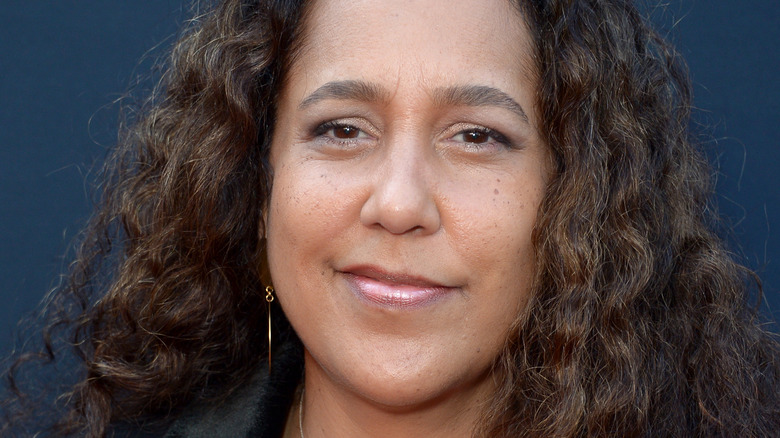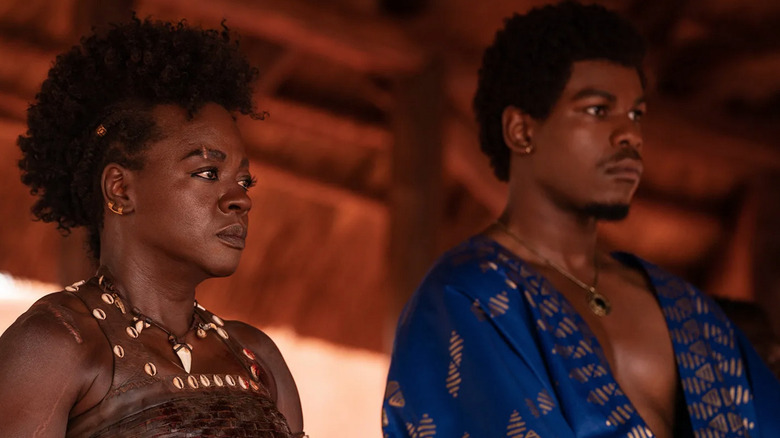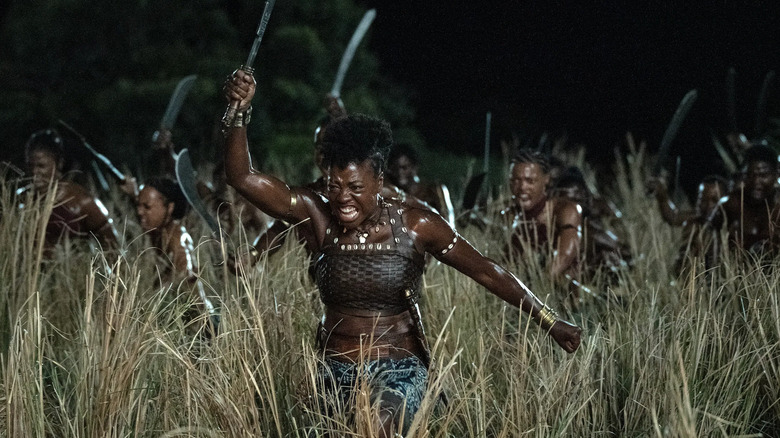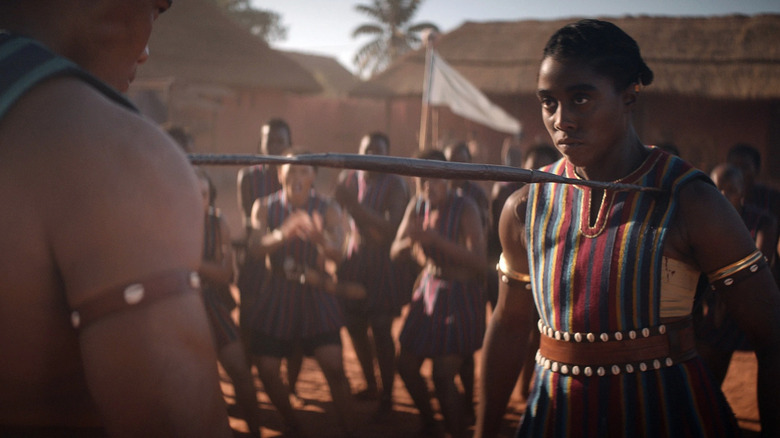Gina Prince-Bythewood On The History And Action Of The Woman King - Exclusive Interview
"The Woman King" made its world premiere at the 2022 Toronto International Film Festival to a widely positive response. The story is inspired by the history of the kingdom of Dahomey and its all-female fighting regiment, the Agojie, who defeated the conquerors of the Oyo Empire in the 1820s. Comparisons have been made to other historical epics like "Braveheart" and "Gladiator," but while the storytelling and style may be familiar, the particular subject matter is not something mainstream audiences have seen on the big screen before.
Looper got the chance to speak with the film's director, Gina Prince-Bythewood. Prince-Bythewood made her name in dramas like "Love & Basketball" and "The Secret Life of Bees" before proving she could also handle large-scale action scenes with the Netflix superhero movie "The Old Guard." Looper asked the filmmaker about her first reactions to "The Woman King" screenplay, how she felt about navigating some of the more uncomfortable aspects of the history, and how she kept the action intense and visceral within the confines of a PG-13 release.
Making something we haven't seen before
The original pitch for "The Woman King" was being shopped around Hollywood for five years before finally being green lit. What were your thoughts when you first read the script?
The first thought was "I have to do this. Absolutely." I was so connected within five minutes. When I read that they rise up above the grasses, ready to go ham, I was like, "I want to shoot that." The more I read and then getting into the more personal stories that are weaved throughout this film, I felt like it was something I hadn't seen before, but something that I had wanted to see and I'm my first audience.
How did you approach balancing the celebration of the Agojie's strength and camaraderie with the acknowledgement of the darker side of their involvement in the slave trade?
It was about telling the truth. We wanted to be authentic. It's a complicated history that thousands of cultures, unfortunately, through the years have dealt with, but we were focusing on these women, this incredible group of women that their stories hadn't been told and about focusing on their push to change things within the kingdom.
I was curious about how you told the timeline of things, because at the end of the movie, it's at least implied that they're finally getting slavery abolished. However, from what I've read, that didn't happen until the 1850s, three decades later. How did you approach that?
For us, what the ending represents is that they won this battle, but a war continues. Certainly, it was important to tell the truth and the ships are leaving for now, they will return, but these warriors are standing there, ready for the fight.
Telling stories of war and revolution
Was it difficult telling a violent war story within the confines of a PG-13 rating?
It actually is not difficult. It's the way you approach the action. I wanted this action in the storytelling to absolutely be truthful. I wanted it to feel raw and visceral and real. It's being a little more creative. With "The Old Guard," I had more leeway in terms of how I shot it and what I wanted to see. For this, I didn't feel I needed that level of violence. This is war, it's real, but you don't have to be gratuitous with it.
There is so much fascinating African history that hardly ever gets depicted on the screen. What other stories from African history would you particularly want to either see or make a movie of?
One of my dreams certainly is the story of Toussaint Louverture and what happened in Haiti against the French. That is one of the dream projects.
Gina Prince-Bythewood trained with her actors
I read that you trained with the actors while they were doing their physical training. What was that like?
It's important for me when I'm telling actors to do something that's really hard that I want to show them, I'm willing to do the same. It was also an opportunity for me because I work out before every film to build up the stamina to get through, in this case, a 63 day shoot. It's a lot, and it takes a lot out of your mind and body. To be able to join them, to get free training, it was something I couldn't pass up. It was also great bonding for them and for me to push them, to see them, but also because that type of training builds character as part of the rehearsal process. To be able to be within it was helpful for all of us.
Is there anything in particular you're hoping that audiences take away from "The Woman King"?
My hope is that you're seeing a part of not only my history, but global history that you didn't know about, that these women were real, they existed to honestly reframe what people think about women, the fact that we can be warriors, that we do have an innate fight within us. I hope [you find] the emotional connection that you have with these characters that you may not be familiar with in your real life.
"The Woman King" premiers exclusively in theaters on September 16.
This interview has been edited for clarity.



